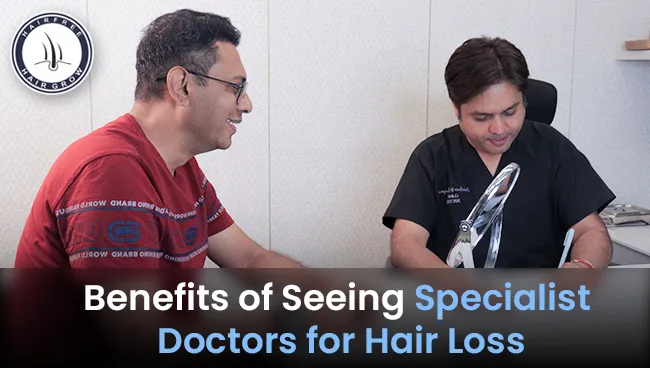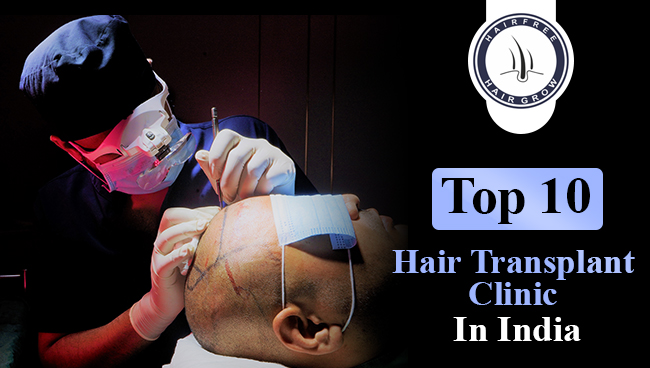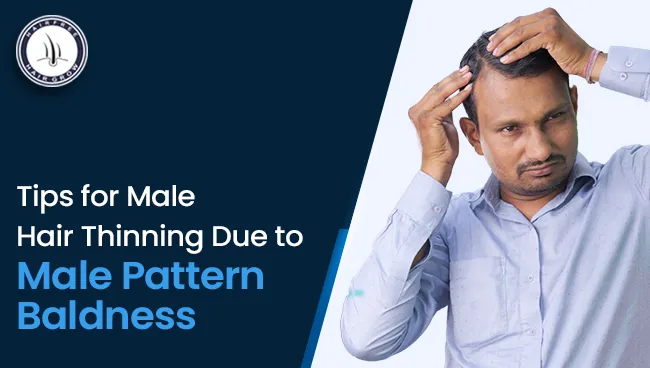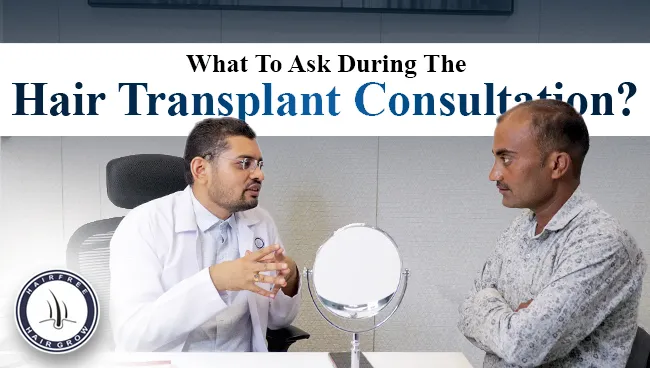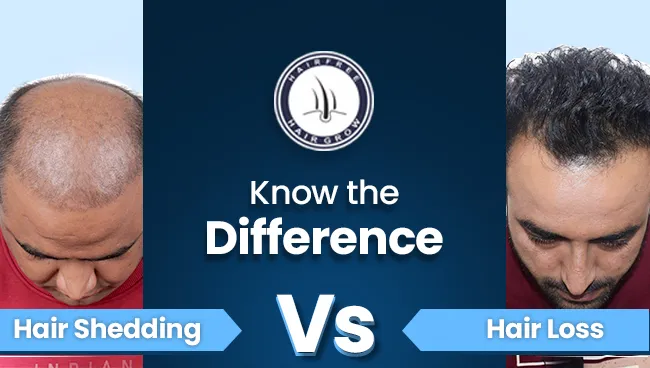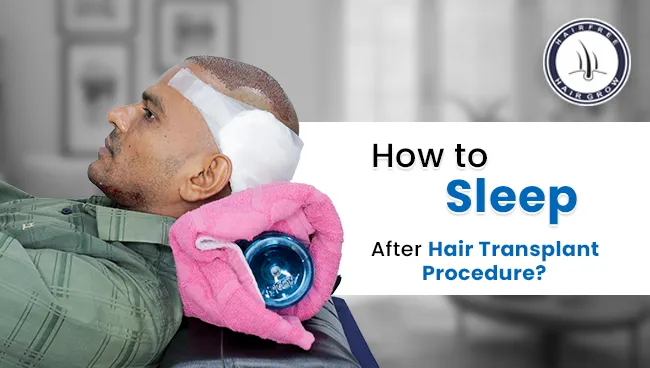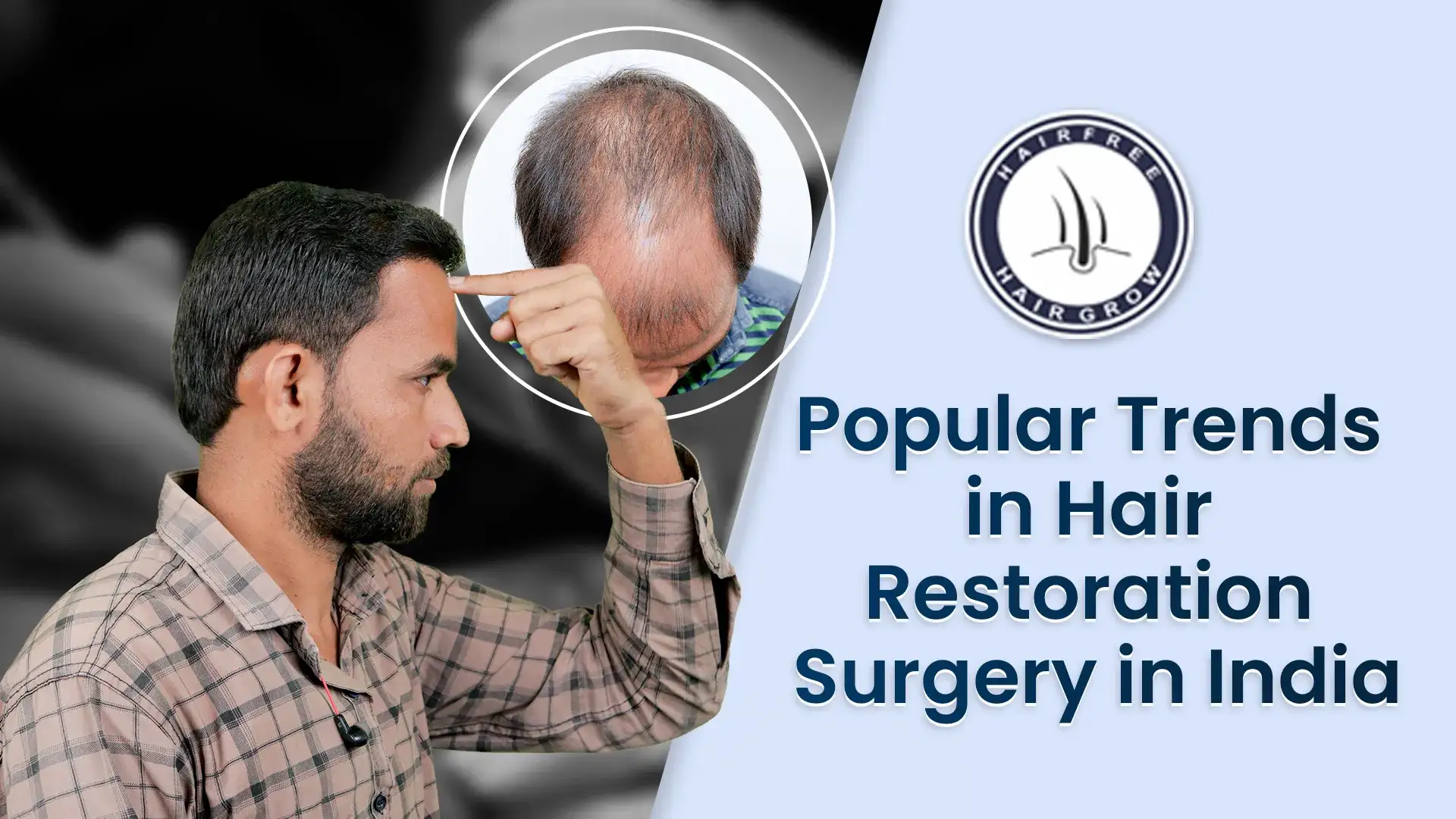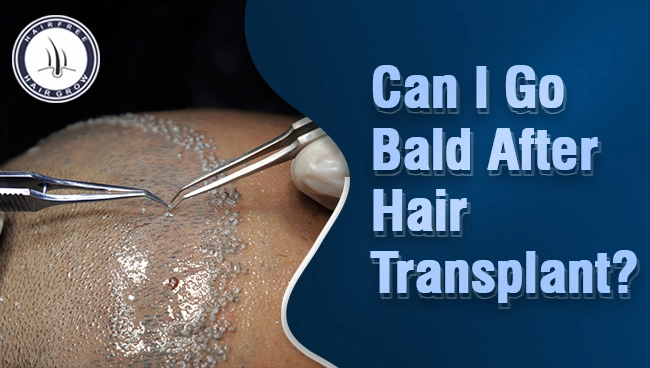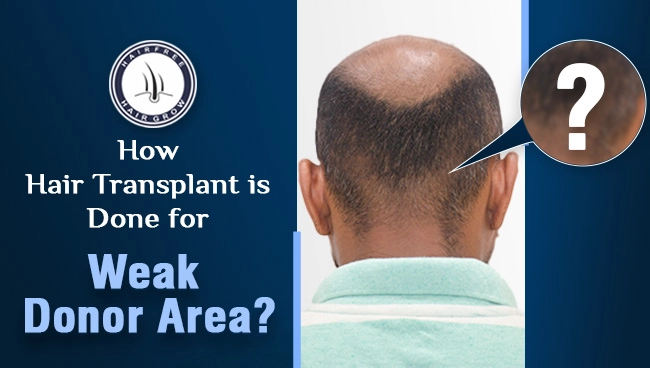What Are the Causes of Hair Loss?
Hair loss, also known as alopecia, can happen for many reasons. The most common culprit is genetics, affecting both men and women. Aging is another factor, as hair growth naturally slows down. Medical conditions, hormonal shifts, hairstyles that pull on your hair, and even stress can all contribute to hair loss.
What Is a Hair Transplant?
A hair transplant is a surgical procedure that moves hair follicles from a donor area on the scalp to a bald or thinning area. Tiny punches are used to remove healthy follicles, which are then implanted in the recipient area. This is done one follicle at a time for a natural look.
Is Hair Transplant Procedure Painful?
Hair transplants are generally not considered a painful procedure. This is because they use local anesthesia to numb the scalp where the hair follicles are extracted and implanted. You might feel a slight pinch from the anesthetic injection, but the scalp itself should be numb throughout the surgery.
Who Is a Candidate for Transplantation?
Good candidates for hair transplants have healthy hair growth in a donor area. This ensures enough follicles can be transplanted. People with extensive hair loss or certain scalp conditions may not be suitable candidates.
How Successful Are Hair Transplants?
Hair transplants are a well-established procedure with high success rates. The transplanted hair follicles continue to grow throughout your life, resulting in a permanent and natural-looking head of hair.
Will My Hair Look Natural After a Hair Transplant?
Yes, a hair transplant can look very natural if done by a skilled surgeon. The transplanted hair is your own, taken from areas where hair is thicker, ensuring it blends seamlessly. The technique and experience of your surgeon play crucial roles in achieving a natural appearance.
How Does FUE Hair Transplant Work?
FUE (Follicular Unit Extraction) involves removing individual hair follicles from a donor area and implanting them into the thinning or bald areas. This method leaves minimal scarring and allows for a more natural hairline. Each follicle is carefully placed to match the natural direction of your hair growth.
Is Hair Transplant Surgery the Most Effective Way to Restore Hair?
Hair transplant surgery is one of the most effective long-term solutions for hair loss. It offers permanent results compared to temporary treatments like medications or topical solutions. While it might not be suitable for everyone, for many, it provides a significant and lasting improvement.
How Long Does the Surgery Take, and How Much Recovery Time Should I Plan For?
The surgery takes 4 to 8 hours, depending on the extent of the procedure. Recovery time varies, but most people can return to work within a few days to a week. Full recovery, including the healing of all grafts, can take several weeks, and final results are usually visible after 6 to 12 months.
How Will I Look After My Surgery?
Immediately after surgery, you might experience some redness, swelling, and scabbing in the treated areas. These effects typically subside within a week or two. Your hair will initially shed, which is normal before new growth begins. As the transplanted hair grows, your appearance will gradually improve.
When Will the Patient See the Results?
Initial hair growth can be seen around 3 to 4 months after the surgery. Significant improvements become noticeable at 6 to 9 months. Full results, with thickened and mature hair growth, are usually visible by 12 months post-surgery. Patience is key, as hair growth cycles vary from person to person.
How Long Will the Transplanted Hair Continue to Grow?
After a hair transplant, the transplanted hair should continue to grow just like your natural hair. It’s permanent, which means it won’t fall out. You might experience some shedding in the first few weeks, but new hair will grow from the transplanted follicles, giving you long-term results.
Do Hair Transplants Cause Any Scars or Any Other Permanent Marks?
Hair transplants can leave tiny scars, especially with older techniques. However, modern methods like FUE (Follicular Unit Extraction) minimize scarring by extracting individual follicles. Any scarring is usually tiny and easily concealed by surrounding hair. With proper care and healing, these marks become barely noticeable over time.
What Happens After My Hair Transplant Surgery?
After surgery, you’ll need to follow your doctor’s instructions for recovery. Expect some swelling and discomfort for a few days. Your transplanted hair may initially fall out but don’t worry, it’s part of the process. Over the next few months, you’ll notice new hair growth. It’s essential to be patient and take care of your scalp to optimize results
How Much Does Hair Transplant Surgery Cost?
The cost of hair transplant surgery can vary widely depending on factors like the clinic’s location, the surgeon’s expertise, and the technique used. On average, it can range from Rs. 1,00,000 to Rs. 5,00,000, plus tax. Remember, cheaper options might compromise quality and results, so it’s crucial to prioritize skill and reputation over cost.
The Cost for Your First Procedure Is Higher Than Some of Your Competitors. Why?
The initial cost of a hair transplant might be higher at our clinic because we prioritize quality and effectiveness. We invest in state-of-the-art technology, experienced surgeons, and personalized care to ensure the best possible outcomes for our patients. While you might find cheaper options elsewhere, our focus is on delivering excellent results and ensuring your satisfaction in the long run.
How Many Procedures/Sessions Are Necessary?
The number of procedures or sessions needed varies depending on the individual and the extent of hair loss. Generally, patients may need one to two sessions to achieve desired results. Your doctor will assess your condition and recommend the best plan for you.
What About Ongoing Maintenance After the Surgery? Is There Anything I Should Know About?
After surgery, ongoing maintenance includes medications like minoxidil or finasteride to support hair growth and prevent further loss. Regular check-ups with your hair transplant doctor are important to monitor progress and address any concerns.
After a Hair Transplant, How Many Days Can I Wash My Hair?
You can usually start washing your hair gently with a mild shampoo about 2-3 days after the hair transplant procedure. Follow your doctor’s specific instructions to ensure proper care and healing.
Does a Patient Need to Stop His Exercise or Gymming?
It’s generally advised to avoid strenuous exercise or gym activities for about a week post-surgery. Light activities like walking are fine, but intense workouts should be postponed to ensure proper healing.
Does the Patient Require Any Leave from His Office or His Business?
Taking a few days off work is recommended to rest and recover. Most patients feel comfortable returning to their routine within 3-5 days, depending on how physically demanding their job is. Your doctor can give you more personalized advice based on your situation.
Are There Any Dietary Restrictions?
Generally, there are no strict dietary restrictions before or after a hair transplant. However, it’s a good idea to maintain a healthy diet rich in vitamins and minerals to support overall hair health. Avoid alcohol and smoking as they can affect healing and hair growth post-surgery.
What About the EMI Facility?
Many clinics offer EMI (Equated Monthly Installment) facilities to make hair transplants more affordable. This means you can pay for the procedure in monthly installments rather than a lump sum. Check with your chosen clinic for specific EMI options and terms, as they can vary.
Can One Color His Hair?
Yes, you can color your hair after a hair transplant. However, it’s recommended to wait at least four weeks post-surgery to allow the transplanted hair and scalp to heal properly. Always use gentle, high-quality products, and consider consulting your surgeon before coloring.
Can a Diabetic Patient Undergo a Hair Transplant?
Yes, diabetic patients can undergo a hair transplant, but they need to have their condition well-controlled. It’s crucial to discuss your diabetes with the surgeon beforehand, as they may need to take extra precautions to ensure safe and successful surgery. Regular monitoring and communication with your healthcare provider are essential.
Why Should Patients Trust Our Hair Restoration Doctors?
At HairFree HairGrow Clinic, our doctors are highly experienced and board-certified specialists in hair restoration. They’ve successfully performed thousands of procedures, earning a reputation for excellence. We prioritize patient care, using a personalized approach to understand each individual’s needs and goals. With our state-of-the-art facilities and commitment to ongoing education, you can trust that you’re in the best hands possible.
Why Should Patients Trust Our Hair Restoration Doctors?
At HairFree HairGrow Clinic, our doctors have 10 years of experience and are board-certified specialists in hair restoration. They’ve successfully performed thousands of procedures, earning a reputation for excellence. We prioritize patient care, using a personalized approach to understand each individual’s needs and goals.
Are Our Surgical Techniques the Best Practices Available Today?
Yes, at HairFree HairGrow Clinic, we utilize the latest and most advanced surgical techniques in hair restoration. Our methods include minimally invasive procedures like Follicular Unit Extraction (FUE), BIG FUE, I-FUE, and Direct Hair Implantation (DHI), which ensure natural-looking results with minimal downtime.
How Long Do Hair Transplants Last?
Hair transplants are generally considered a permanent solution to hair loss, as the transplanted hair follicles are resistant to the effects of male pattern baldness. This means they can last a lifetime. The longevity of the results depends on the surgeon’s expertise and adherence to post-operative care instructions.
How Much Do 5000 Hair Grafts Cost?
The cost of 5000 hair grafts can vary widely based on the clinic’s location, the surgeon’s experience, and other factors. On average, the cost can range from. 100,000 to Rs. 250000 in India.
What Is the Best a Age for a Hair Transplant?
The ideal age for a hair transplant is generally considered to be 25 and older. By this age, hair loss patterns are more predictable, and the risk of needing additional transplants later in life due to ongoing hair loss is reduced.
What Happens 10 Years After a Hair Transplant?
Ten years after a hair transplant, the transplanted hair should still be present and growing well. The results’ longevity depends on factors like the surgeon’s expertise and post-operative care. Overall health and any subsequent hair loss in non-transplanted areas can also affect the outcome.
Does Donor Hair Grow Back?
It depends! In most cases, yes, hair will grow back in the donor area. The reason is that surgeons typically harvest hair follicles from the sides and back of the scalp, where hair tends to be resistant to balding. These follicles can continue to produce new hair even after being transplanted.
Do I Lose Hair After a Hair Transplant?
After a hair transplant, it’s common to experience “shock loss,” where transplanted hair sheds within the first few weeks. This is temporary, and the hair usually starts to regrow within a few months. Following post-operative care instructions can help manage this phase effectively.
Who Should Avoid Hair Transplants?
Individuals with serious health complications, such as heart disease, kidney or liver failure, or uncontrolled diabetes, should avoid hair transplants. These conditions can increase the risk of complications during and after the hair transplant procedure, making it unsafe for the patient.
Which Country Is Best for Hair Transplants?
India is considered one of the best countries for hair transplants due to its combination of experienced surgeons, advanced clinics, and affordable prices.
Can a Hair Transplant Fail?
Yes, a hair transplant can fail due to reasons like graft rejection, poor surgical technique, or inadequate post-operative care. It’s crucial to choose a skilled surgeon and follow all care instructions to minimize the risk of failure.
What Age Is Too Late for a Hair Transplant?
There’s no strict age limit for hair transplants, but outcomes may be less satisfactory in individuals over 65 due to factors like slower healing and reduced hair density. It’s essential to have realistic expectations and consult with a specialist to determine suitability.
What Is Stage 6 Hair Loss?
Stage 6 hair loss, according to the Norwood Scale, involves significant hair thinning on the crown and extensive hair loss at the temples, often leaving a bridge of hair across the top of the head. Hair transplants can still be effective at this stage, though they may require more grafts.
Is Hair Transplant Haram?
Islamic scholars have varying opinions on hair transplants. Some consider it permissible (halal) if it is done to restore the natural appearance without altering the creation of Allah. Others advise against it. It’s best to consult with a knowledgeable religious authority for personal guidance.
Can Transplanted Hair Fall Again?
Transplanted hair is generally resistant to the effects of male pattern baldness and is less likely to fall out. However, surrounding non-transplanted hair may continue to thin or fall out over time, potentially requiring additional treatments or procedures.


